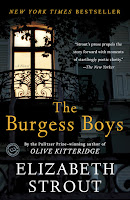When it comes to reading suggestions for the characters of HtGAwM, almost every character could benefit from browsing the books shelved under 646.77 (aka Dating & Relationships).
Professor Annalise Keating: I wouldn't dare to give Professor Keating any sort of advice on anything ever.
Wes: Cinnamon Roll Murder by Joanne Fluke. Enough said.
Nate: The Suspicions of Mr. Whicher by Kate Summerscale. The story of the Victorian detective who inspired Arthur Conan Doyle to write Sherlock Holmes, and the case that destroyed his career.
Laurel: The Secret History by Donna Tartt. Someone needs to read this book. Seriously guys, murder is never a good extra-curricular.
Connor: Boy Meets Boy by David Levithan. Connor deserves the escape of an upbeat, whimsical love story.
Asher: The Trophy Kids Grow Up by Ronald Alsop. Honestly? I picked this for the title. I don't think Asher is likely to read anything.
Michaela: I've Got Your Number by Sophie Kinsella. An upbeat, romantic tale about a lost wedding ring and an engagement to the wrong man that has absolutely no murders and a happy ending? Just what Michaela needs.
Bonnie: Confessions of a Sociopath by M.E. Thomas. An exploration of the traits used to identify psychopaths, including a helpful checklist.
Frank: The Psychopath Test by Jon Ronson. In fact, maybe Frank and Bonnie should just start a book club. Seriously, those two scare me.
If you enjoyed reading this, you should check out Aisha's reading suggestions for the characters of Scandal.
~Sarah, Adult Services


















